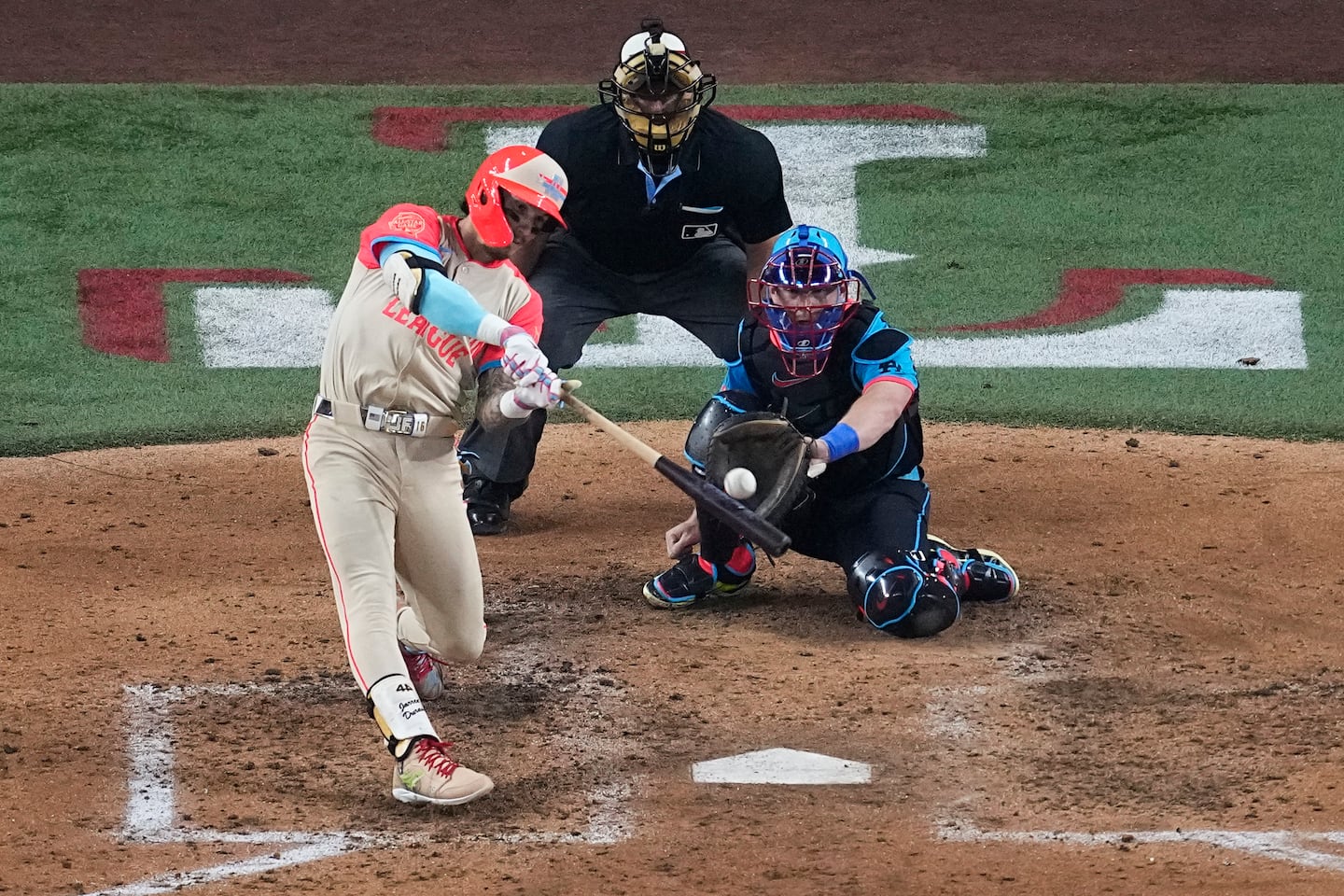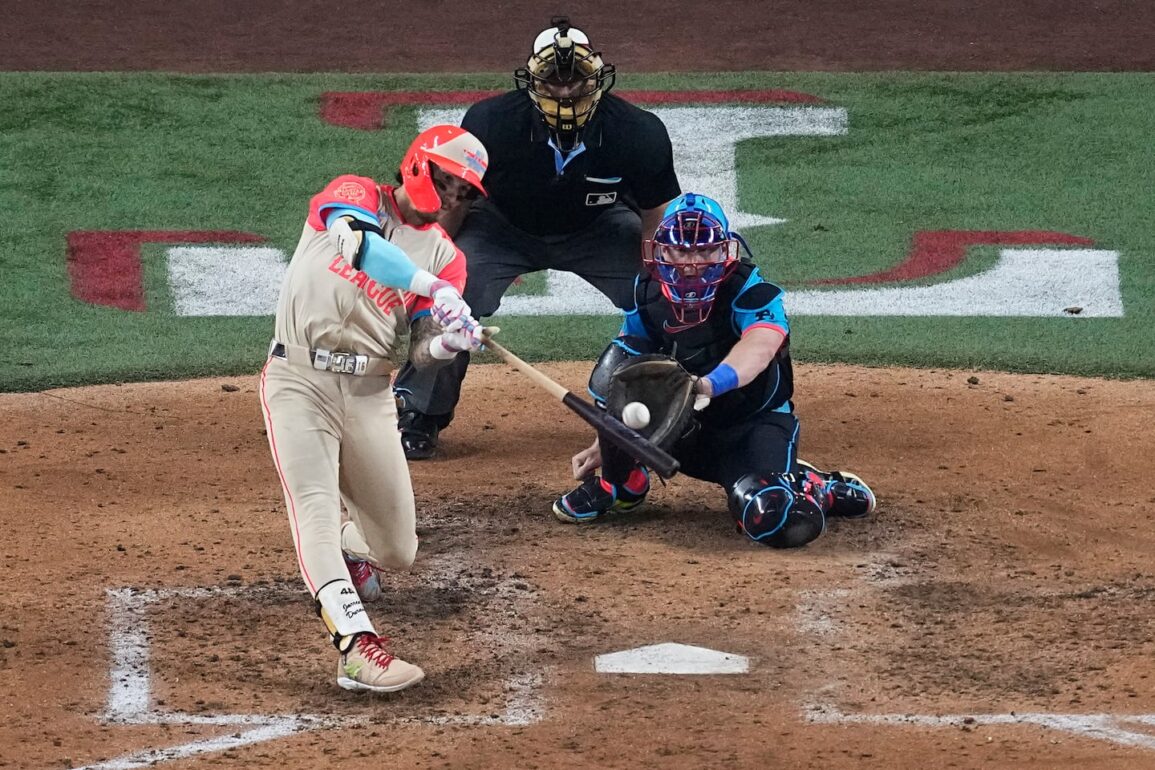There’s a lesson here for all of us.
It’s a lesson for fans, social media warriors, veteran wiseguy columnists, sports talk-radio barkers, young athletes, bullied children, professional athletes, agents, team executives, political leaders, ballclub owners, and citizens who maybe don’t know or care about the mean streets and back roads of big-time, big-money sports.
And that lesson is this: back off. Don’t be so harsh.
Sure, professional athletes are paid ridiculous sums to play games that a lot of us played for free as children and young adults. Professional athletes can present as spoiled, entitled, lazy, overrated, overpaid, unappreciative, and uncaring about the emotions and dollars fans invest in teams.
But before you hit “send” on that anonymous, mean-spirited X message; before you call Felger and Mazz to skewer and humiliate the guy who dropped the ball last night; before you smile smugly at your righteous cleverness and well-crafted insult of the big-money guy who spit the bit in the big game last night …
Remember Jarren Duran.
Remember this perfectly sculpted, big-screen photogenic, spectacular young baseball talent, who stood in the middle of the clubhouse and took questions about the most sensitive of issues for almost 12 minutes before Tuesday’s Red Sox-Blue Jays game at frozen Fenway.
Jarren Duran is somebody’s son. He’s somebody’s brother. He’s a guy blessed with superhero skills, but he battles inner demons that plant doubt, worry, and darkness in his handsome head. He hears the smarmy, sometimes obscene words that get showered on his shoulders when things don’t go well on the baseball field. He’s felt the vitriol of the poison pen and the hateful hot take.
It got to him three seasons ago after an awful moment at Fenway.
It was the night he lost sight of a fly ball hit to the deepest park of center field. The ball was hit by Toronto’s Raimel Tapia and the bases were loaded, and Duran appeared to give up on the play. He stood in medium center field, staring blankly while Alex Verdugo ran down the ball and Tapia (and teammates) gleefully rounded the bases.
The reaction was rough. It looked like Duran had quit on the ball. Fenway fans will stand for almost anything other than watching one of the locals give up.
He heard the noise. It was during his difficult 2022 season that he sat alone in his Greater Boston apartment, took out a rifle, put a bullet in the rifle, pointed the rifle’s barrel at his head, and pulled the trigger.
“Click.”
Then nothing.
Duran had made a decision to die by suicide, and pulled the trigger on himself, but the gun malfunctioned.
You can see Duran talking about this in episode four of the eight-part documentary on the 2024 Red Sox: “The Clubhouse, a year with the Red Sox.” The title of the episode is “Still Alive.”
“It was a pretty low time for me,” Duran tells documentarian Greg Whiteley in the video. “Like, I didn’t want to be here anymore. … I got to the point where I was sitting in my room; I had my rifle and I had a bullet and I pulled the trigger and the gun clicked but nothing happened. … To this day, like, I think God just didn’t let me take my own life because I seriously don’t know, like, why it didn’t go off.
“But I took it as a sign of like, all right, I might have to be here for a reason. So that’s when I started to look myself in the mirror. After the gun didn’t go off, I was like ‘All right, well like, do I wanna be here or do I not wanna be here?’ ”
Things started to get better for Duran in 2023, and last season he lit up the scoreboard — hitting .285 with AL-bests of 48 doubles and 14 triples, and 21 homers. He was riding high, MVP of the 2024 All-Star Game. He could have moved forward into this season without ever telling anyone of his crisis moment.

Instead, he chose to tell the world what happened; what it’s like to be told you are worthless because you didn’t make a play on a ball hit to center field at Fenway Park.
Duran could have lied and put up a strong front for Netflix, presenting himself as the joyous young star-on-the-rise with all great things in front of him. No — he told the truth. He told the world he’d tried to kill himself in a low moment. And then he had to think about it over the winter and prepare for a media storm in April.
“The whole purpose of me sharing was to kind of get it out there and let people know that they’re not alone,” Duran said Tuesday. “If I can help just one person, it’s meaningful. I’m just trying to let people know that there’s always hope and to make sure they’re reaching out.”
Duran’s “story” has stuck a perfect landing. He’s been applauded by his bosses, teammates, the commissioner of baseball, and mental health professionals across the country. His parents, Octavio and Dena, issued a statement which read, in part, “We only recently learned the full extent of what Jarren went through … ”
“[Fans] don’t think of [ballplayers] as people, and how hard they worked to get where they’re at,” Duran’s mom said in the doc. “It’s ‘bring in the next guy!’ They were just like, ‘he sucks! he sucks!’ As a mom, it’s like every at-bat is, ‘God, please let him get a hit, please let catch the ball.’ It’s torture.”
“I feel like people see us as zoo animals, sometimes, in this big ole cage,” Duran said in the doc. “Throw popcorn at you, get a picture with you, get your attention, scream your name. Sometimes some fans take it too seriously. I feel like they cross the line when they talk about my mental health and make fun of me for that, calling me weak … ”
This is courageous, not weak.
Weak is what we do when we think we know these guys and mock them or assign negative motivations when things go wrong on the field, the court, or the ice.
I’ve done it. You probably have, too.
So let’s learn from this and try to remember.
Learn from Octavio and Dena Duran.
That’s somebody’s son out there.
Dan Shaughnessy is a Globe columnist. He can be reached at daniel.shaughnessy@globe.com. Follow him @dan_shaughnessy.
This post was originally published on this site be sure to check out more of their content.



